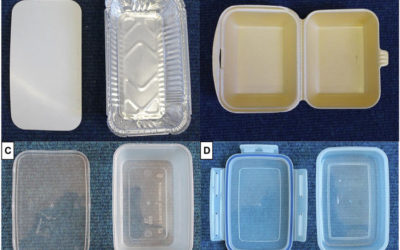Supermarkets are at the forefront of the battle against plastic waste, so much so that major chains signed up alongside brands such as Nestlé and Coca-Cola to the UK Plastics Pact in 2018. Between them, these brands account for over 80% of the UK’s plastic waste, meaning that it’s a great step forward to tackling unnecessary plastic waste, but how are supermarkets going about meeting their targets?
1. Removing Plastic Bags The most obvious method of removing plastic waste has been the reduction in the use of plastic bags first brought in by the government. The plastic bag charge was set at 5p in 2015 and is set to increase to 10p in January 2020. Some supermarkets have already taken this further, however, with Morrisons introducing a durable paper bag as an alternative, and other supermarkets such as Aldi and Asda have removed 5p plastic bags from their offering.
2. Tackling Pizza Boards Fresh pizzas in supermarkets have generally been sold on polystyrene trays in the past, keeping the pizza base from cracking and ensuring the product remains visually appealing. However, that polystyrene generally goes straight to landfill and is slow to biodegrade so some supermarkets like Asda are making the switch to cardboard alternatives that keep the pizza in shape but are compostable afterwards. The key here is that there aren’t additional layers of non-compostable material – companies have been shamed on these in the past in relation to coffee cups.
3. Using Bagasse If you haven’t heard of it, bagasse is a common by-product from sugarcane and similar plants that has often been used as a fuel. However, it’s also a brilliant substitute for materials such as plastic in things like meat trays. Instead of switching to traditional paper or cardboard that might not offer a positive customer experience, supermarkets and suppliers are switching to bagasse as a more rigid and environmentally friendly option. Read more about bagasse here.
4. Going Plastic Free on Fresh Products The amount of plastic used in packaging fruit and vegetables for sale has long been ridiculed, with supermarket chains even packing bananas in external plastic packaging just in case the natural skin wasn’t tough enough. Thankfully, those days are gone, and supermarkets are now acting to reduce the amount of plastic used in their food and vegetable aisles. As well as selling more products loose, companies like Iceland are also swapping out plastic for biodegradable alternatives like compostable punnets, paper bags and cellulose nets. There’s no doubt that supermarkets are far more aware of their plastic waste responsibilities than they were just a few years ago. This change in approach is undoubtedly related to increased consumer awareness and demand – customers have the power to make large companies change their attitudes and that can only be good for the environment in the long-term.
Fancy reading some more?
Should You Protect Your Employees with Disposable Face Masks?
As the impact of coronavirus continues to be felt around the world, there are frequent questions here in the UK about getting back to work and how that’s likely to happen in the short term. One of the contentious elements in all this has become face masks. Should your...
read moreEco Friendly Takeaway Containers
Picture the average lunchtime in a city centre and the thousands of takeaway containers being purchased by hungry customers. The chances are, these will mostly be made of polystyrene and plastic, and they’ll be sent straight to landfill after use. Increasingly,...
read moreHow Cork is Starting a Quiet Revolution
Environmentally friendly materials are found in things we see every day and harnessing the power of these materials can help reduce our carbon footprints and provide some innovative solutions to daily challenges. Cork is one of those materials you might not think of...
read more


